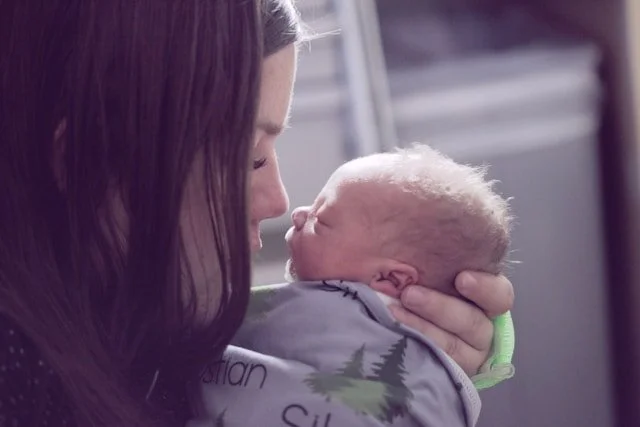Managing Emotions After a Birth That Didn’t Go as Planned
When you imagined bringing your baby into the world, you likely had hopes for how it would unfold. Maybe you pictured a calm delivery or counted on certain pain management options. But birth doesn’t always follow the script we create. Labor can shift quickly. Emergency cesareans happen, inductions become necessary, or complications force sudden changes.
When your birth experience differs from what you envisioned, the emotional aftermath can feel confusing and overwhelming. You might move through disappointment, anger, guilt, or grief. These reactions are real, valid, and far more common than many people realize. Learning how to work through them is an important part of your postpartum healing.
Allowing Yourself to Feel What You Feel
After an unexpected birth, people may say things like “at least the baby is healthy” or “all that matters is you’re safe.” But these comments can make your emotions feel invisible.
You can feel grateful your baby is here and still mourn the experience you hoped for. Those feelings can exist together without contradicting each other. It’s normal to have mixed emotions about how labor unfolded. When you push down sadness, frustration, or anger, those feelings often intensify. Give yourself permission to acknowledge what’s coming up.
Processing Grief and Making Sense of Your Experience
Grief often shows up when something important unfolds differently than you expected. Mourning the birth you didn’t have helps you move forward.
One way to process what happened is to ask questions. Reach out to your care team so you can understand what led to the decisions during labor. Clear information helps you piece together the narrative.
You may also find relief by telling your birth story to a trusted friend or writing it down. Putting your experience into words can help you sort through your emotions. As you do, look for moments when you showed resilience, whether through hours of labor, an unexpected intervention, or a sudden change in plans.
Building a Supportive Circle
In the early weeks after birth, you need people who respect what you’re feeling. This isn't the time for anyone who dismisses or minimizes your experience.
Choose visitors and helpers who provide comfort, validation, or practical support. If someone makes an unhelpful comment, you can say, “I’m grateful for my baby, and I’m also working through difficult feelings about the birth.” That truth holds both parts of your experience.
Partners and close loved ones can help shield you from stress. They can limit visitors, redirect conversations, and protect your space while you rest and recover.
Reframing the Story: Recognizing Strength and Complexity
As time passes, revisit your birth story with compassion for yourself and your body. A plan that changed does not indicate failure. Birth is unpredictable, and you faced the moment with the inner resources you had.
Consider the strength it took to manage unexpected procedures, long labor, or medical decisions that came faster than you could prepare for. Even when you felt overwhelmed, you moved through each moment. That effort reflects courage.
Gratitude for your baby and grief for the experience you wanted can coexist. Both feelings can help you understand your story more fully.
Reaching Out for Help and Planning for the Future
If disappointment, sadness, or anxiety linger or intensify, reach out for support. Therapy, postpartum groups, and perinatal specialists can help you work through the emotional layers of your birth experience. This support creates space to heal and reduces the risk of postpartum depression or anxiety.
Getting help shows strength and awareness, not weakness. A therapist can help you integrate what happened so you can move forward with steadier footing. If you’re considering another pregnancy, support can help you prepare, advocate for yourself, and feel more in control next time.
–
You deserve care as you navigate the emotions surrounding your birth experience. If you’re struggling, reach out to our office to schedule a free consultation or your first postpartum counseling appointment.

